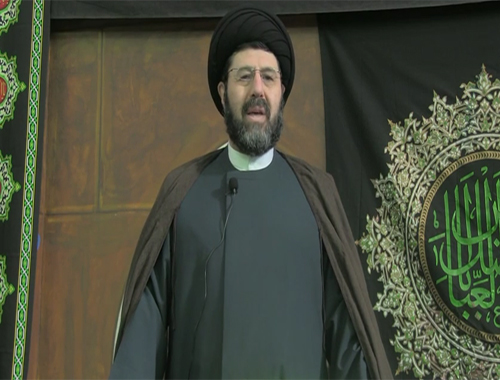There are other conditions for Acceptance of Prayers
- Details
- Hits: 3038
There are other conditions for Acceptance of Prayers
One who recites Prayer in the proper manner has fulfilled his obligation. There is no punishment for him. But there are additional conditions for the acceptance of this Prayer by the Almighty and for being rewarded. The most important condition for this is to pray with concentration. One who aims for such a high status while being careful of these conditions is raised to such a degree that no other doers of good deeds can reach it. Here we shall be content to mention some of the traditions with the hope they shall benefit the readers.
Imam Ja’far as-Sadiq (a.s.) says,
“One who performs two units (rakats) of Prayer while being conscious of what he is reciting, then after he completes the Prayer, Allah will erase all his sins.”
(Wasa’il ul-Shia, Vol. 4, page 684)
Imam (a.s.) has also stated,
“The Prayers that you have offered with concentration are with you but if one is unmindful in all the Prayer or recites it omitting some rituals, it is wrapped up and tossed at ones face.”
(Wasa’il ul-Shia)
Hazrat Amir ul-Mu’minÄ«n ‘Ali (a.s.) says,
“None of you should recite Prayers in sloth, laziness and sleepy condition. And neither should you think about yourself or any other thing. Because in the condition of praying he is in the presence of his lord and only that prayer of a person is acceptable which is recited with concentration.
(Wasa’il ul-Shia: Vol. 4, page. 687)
The Messenger of Allah (S) says,
“Two rakats (units) of prayers recited with concentration and consciousness of the meaning of recitation is better than standing up the whole night in worship.”
(Wasa’il ul-Shia: Vol. 3, page. 54)
He (S) also stated,
“The Almighty Allah does not accept the prayers of one who does not recite it with concentration.”
(Mustadrak ul-Wasa’il)
Imam Ja’far as-Sadiq (a.s.) says,
“When you stand up to pray, prepare your mind for prayers. Because whenever you step towards prayers and concentrate on it, the Almighty Allah will also turn His mercy towards you, And whenever you turn your attention from it, or are unmindful or leave one of its rituals or necessary condition, Allah will also not glance at you with mercy. That’s why, sometimes prayer is not accepted, except one third, one fourth or one sixth part that the person had recited with concentration. And one who remains absent minded in the whole prayers, will not be bestowed anything by Allah, the High and Mighty.”
(Wasa’il ul-Shia and Mustadrak ul-Wasa’il)
The Late Aga Naraqi (r.a) says in the book Me’rajus SadÄt: Prayer is a divine composition that is made up of various aspects, the co-ordination of which brings the prayer to perfection. An analogy is the human form with its different external and internal characteristics, the co-ordination of which makes a complete functioning human being. The most important is the soul and its relation with the heart and the mind, which decides the spiritual calibre of the person. Then there are vital organs like the heart, liver, brain, without which life is not possible; and their absence is death. Some features like limbs, eye, tongue etc. live without them, but their absence leaves a person incomplete. Then there are features like eyebrows, eyelashes, beard, ears etc. which contribute to the person’s good looks and their absence would make a person look very unpleasant. For the enhancement and perfection of physical beauty are characteristics like big eyes, dark hair and a glowing complexion. In the same way for the divine conditions to be observed for prayers; the soul is the intention, piety, sincerity and concentration. Its rituals, TakbÄ«ratul Ehram, Ruku, Sajdahs, Tashahud and QiyÄm are the vital organs, omitting even one of which nullifies the prayer. Other obligatory acts like, QirÄt, Zikr, unhurried RukÅ«’, as-Sajda and Tashahud are such that if they are neglected intentionally the prayer will be invalid. They can be compared to the limbs and tongues of the human body. A loss of these sometimes results in death and sometimes the person survives. The recommended rituals like Qunut, the Mustahab TakbÄ«rs and Mustahab Zikr etc. are like the decorative features which contribute to good looks and those, whose absence destroys the perfection of physical elegance.
Therefore concentration is a necessary condition for acceptance of prayers. It is like the soul in the human body. A prayer bereft of these conditions will be like a lifeless body. The prayer of the one who recites it without any concentration is just like a lifeless body, without any human feeling or consequence. The worshipper is also deprived of the blessings and rewards of prayers. And one of the most important consequence of reciting prayer according to the Qur’an is as follows:
“Surely prayer keeps (one) away from indecency and evil.”
(Surah al-’AnkabÅ«t 29:45)
If a person who recites prayers is prone to sin, it implies that his prayer was soulless.











